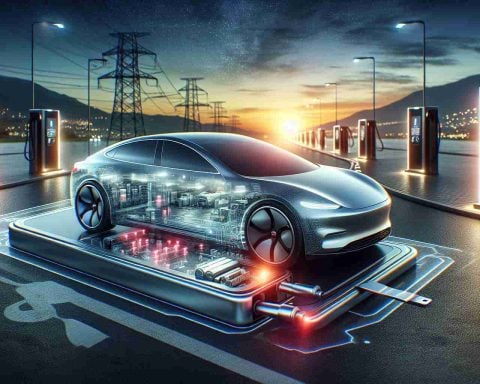Landmark Achievement in Sustainable Mobility
In a significant milestone for sustainable urban transport, Tata Motors proudly announced that its fleet of 3,100 electric buses operating in 10 cities has collectively covered over 25 crore kilometers. This astonishing distance equals circumnavigating the Earth more than 6,200 times!
With an average daily mileage of 200 kilometers, these electric buses play a crucial role in decreasing air pollution and promoting eco-friendly mass transportation. Through this extensive travel, they have successfully avoided approximately 1.4 lakh tonnes of harmful CO2 emissions.
The CEO of TML Smart City Mobility Solutions Limited expressed pride in reaching this remarkable achievement, highlighting that 15 crore kilometers were only covered in the last year. This resonates with the increasing demand for sustainable transport solutions from both commuters and state transport authorities. The message of gratitude was extended to all stakeholders for their trust and collaboration.
Tata Motors’ e-bus fleet offers impressive reliability, boasting an uptime of over 95% due to advanced data-driven operations and maintenance. Commuters in cities like Mumbai, New Delhi, and Bengaluru benefit daily from these electric buses, which are equipped with features like smooth air suspension, accessible hydraulic lifts, and comfortable ergonomic seating.
Available in multiple sizes, ranging from 9 to 12 meters, these electric buses seamlessly blend cutting-edge technology and exceptional performance, setting a new standard in public transportation.
Revolutionizing Urban Transport: Tata Motors’ Electric Bus Fleet Hits New Milestone
Overview of Tata Motors’ Electric Bus Initiative
Tata Motors has made a significant mark in the realm of sustainable urban transport through its impressive fleet of electric buses. With 3,100 electric buses currently operating across 10 cities, Tata Motors has surpassed a remarkable milestone of 25 crore kilometers traveled, showcasing the vast impact these vehicles have on public transportation and environmental sustainability.
Environmental Impact and Sustainability
The operation of these electric buses plays a vital role in mitigating air pollution. Their journey has led to the avoidance of approximately 1.4 lakh tonnes of harmful CO2 emissions. This achievement emphasizes the importance of transitioning public transport towards greener solutions, reinforcing the need for more eco-friendly transportation options in urban areas.
Features and Specifications
Tata Motors’ electric buses are designed with passenger comfort and operational efficiency in mind. Key features include:
– Average Daily Mileage: Each bus covers around 200 kilometers daily.
– Uptime Reliability: The fleet maintains an uptime of over 95%, attributed to advanced data-driven operational strategies.
– Design and Comfort: The buses are equipped with smooth air suspension, accessible hydraulic lifts, and ergonomic seating arrangements.
– Size Variability: They come in various sizes, ranging from 9 to 12 meters, catering to different urban needs and capacities.
Use Cases and Market Demand
Cities like Mumbai, New Delhi, and Bengaluru have seen the direct benefits of integrating these electric buses into their public transport systems. The demand for sustainable transport solutions is continually rising, driven by the need for reduced environmental impact and improved urban air quality.
Pros and Cons
Pros:
– Significant reduction in CO2 emissions.
– High reliability and operational efficiency.
– Enhanced passenger experience.
Cons:
– Initial investment in infrastructure for electric charging stations.
– Limited range compared to traditional diesel buses, requiring strategic planning for routes.
Pricing and Availability
While specific pricing for the electric buses may vary based on configurations and contracts, Tata Motors is actively involved in discussions to make electric buses an economically viable option for state transport authorities, as they look to expand their fleet and integrate more green technology into their systems.
Innovations and Future Predictions
As urban areas expand, the shift towards electric public transport is expected to accelerate. Innovating with technology and sustainable practices, Tata Motors aims to further increase the efficiency and environmental benefits of their electric bus fleet. Predictions suggest that the company’s efforts could lead to more extensive adoption of electric vehicles in public transport, potentially revolutionizing urban mobility.
Conclusion
Tata Motors stands at the forefront of sustainable mobility with its electric bus fleet, setting a benchmark for public transportation in India. As urban areas continue to grapple with pollution and traffic congestion, initiatives like these offer a promising pathway towards greener cities.
For more insights on sustainable transportation solutions, visit Tata Motors.


















